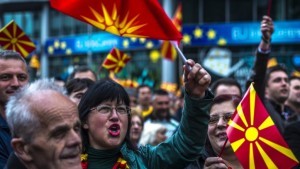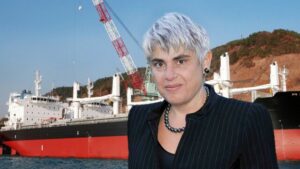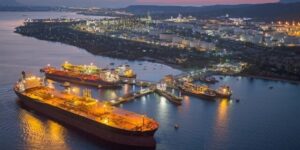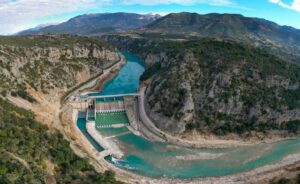In light of the new developments in the Former Yugoslav Republic of Mecedonia (FYROM) and the statements made on behalf of the country’s new Foreign Minister regarding FYROM’s intention to consider at last the possibility of a compromise on the name dispute with Greece, Ambassador Alexandros Mallias approaches the issue from a technocratic/diplomatic point of view based on his personal experiences.
By Ambassador Alexandros Mallias
ELIAMEP Working Paper Nr 79/2017
1. No room for complacency
My personal involvement and engagement with the Former Yugoslav Republic of Macedonia goes back to the early nineties, when I was posted to the Mission of Greece to the United Nations (New York). I was deeply involved in the UN diplomatic fight and marathon that led to the compromise reflected in UNSC Resolutions 817 (April 7 ,1993) and 845 ( June 18, 1993).
In April 1994 ,after Greece closed its border with the former Yugoslav Republic of Macedonia and imposed a series of economic sanctions, I was drinking my coffee in Skopje operating in the white uniform of the Head of the Regional Office for Bulgaria and the former Yugoslav Republic of Macedonia of the European Community Monitor Mission.
In October 1995, a year later, I was crossing the congested by the heavy traffic open border as the first Head of Mission of Greece to Skopje. It was for me a great honor and an important chapter of a long history of personal engagement. So, there is no room for complacency and evasive talk.
2. ”Nemesis and catharsis”
It is appropriate for me to extend my congratulations to the new government in Skopje. In particular to Foreign Minister Ambassador Nikola Dimitrov the best and most successful diplomat in Skopje. I used to work with his father then Minister of Culture of the Liubco Georgievski VMRO Government (1998). Later, I had several meetings with Nikola Dimitrov then Advisor to the late President Boris Trajkovski. Last but not least, we served simultaneously for some time as Ambassadors to Washington.
I anticipate that he may have some difficulties to be acquainted with the impressive accessories in and around the new edifice of his Ministry that moved from the modest building of Ulica (Street) Dame Gruev to its present premises. From his own window he will see Alexander the Great looking towards Babylon instead of Brussels, Philip the Macedon securing the Petrovac International Airport dedicated to the glory of his son and a fair selection of Gods from Mount Olympus.
This was the dominant official policy in Skopje for the tandem Prime Minister Nikola Gruevski – President Gjorge Ivanov in their strategy for responding to the aspirations of their peoples, joining NATO and the European Union and for conquering the hearts and minds of the Greeks…
During my frequent visits to Skopje, I was somehow surprised to see that in a sustained pace red paint become pretty often the indispensable accessory to the statutes.
This policy of “Antiquisation” (“Antikvizatzija” ) is the nationalistic policy pursued for eleven years (2006-2017) in the row under Prime Minister Nicola Gruevski largely supported by his own party VMRO ; it was also supported by an important group of personalities including ambassadors and other top officials. Let’s be clear: Nikola Gruevski was not alone at all in this irrational and costly campaign.
He did so for the purposes of alleged domestic identity-building and for irritating Greece. Antiquisation received also an important endorsement by the slavmacedonian diaspora in the USA, Canada and Australia. So,I was in vain expecting all those who were on record in supporting Mr.Gruevski to slow down the pace of distancing themselves from his catastrophic policies. He is very much alone now, but he was far from alone for so many years.
Lately, there are some in Skopje arguing that the “Antiquisation” was FYROM’s reaction to the NATO Bucharest Summit (April 3, 2008).
The facts are very different. Indeed. As early as January 2007, many months prior to the Bucharest Summit , the Government in Skopje decided to name the highway linking Skopje to Thessaloniki (part of the Pan-European Corridor X) as “Alexander the Great Highway”) and rename the Petrovac International Airport to ( “Alexander the Great” ). The initial decision for intensifying the “antiquisation” policy was adopted in an early 2007 closed session of Nicola Gruevski’s inner circle.
Notwithstanding the Administration policies, the US Congress swiftly reacted in a by-partisan manner. Over 110 influential House Representatives and key Senators as well took action. As early as 2007 Senate Resolution S.Res.300 and House Resolution H.Res.356 denounced the “nationalistic and hostile propaganda” stemming from Skopje against Greece. They stressed inter alia that Skopje”… instilled hostility and a rationale for irredentism in portions of the population of FYROM toward Greece and the history of Greece”. Sponsors included Senators Barack Obama, Jo Kerry, Olympia Snow, Robert Menendez and many others. Among 835 issues introduced as a Resolution of the House in 2007, only four regarding foreign issues –including FYROM’s policies toward Greece- got over 100 members of Congress as sponsors or advocates.
So, there is no apparent causality relation between the launching of the “antiquation policy“ and the Bucharest Summit.
It well existed and developed at least twelve months prior to the NATO April 2008 Summit. Zoran Zaev, the newly appointed Prime Minister unequivocally aligned himself to the grievances of Greece publickly aknowledging that “the previous governments of Nikola Gruevski had provoked Greece by erecting many statues of historical figures (Alexander the Great, Philip of Macedon etc), as well as renaming main roads and the airport of the country”. Speaking to the state television, Mr. Zaev said “ these moves had been one more act that had led to the deterioration of relations with Greece and vowed to stop adopting such policies”. However, asked if he would tear them down Mr. Zaev replied he would not.
This inherent contradiction shows that while distancing himself from former P.M. Gruevski ,Mr.Zaev has on intention to alter the status quo.
3. A bad Constitution
Yet, this line of conduct was consistent with the Constitution of the Former Yugoslav Republic of Macedonia. Its fundamental Charter, the 1991 Constitution , is the root cause of the endemic cyclical troubles ,problems and interethnic tension as well as of the problems and irritants arisen with its neighbors , Greece included.
It is a bad Constitution based on the old Yugoslavian principle of nationalities and not on the European principle of citizens. The Preamble created and indeed cemented the discrimination between Slavmacedonians and Albanians.
Late ethnic Albanian leaders Arben Xjaferi and Abdurahman Aliti were advocating since the early nineties the need to remedy with this situation. The Slavs resisted early warning and advice offered to them. Following the 2001 interethnic conflict and the NLA’s successful campaign under the leadership of the charismatic Ali Ahmeti, the Preamble was somehow amended in Ohrid under the aegis of the European Union and the United States.
Yet, there are still a couple of extra miles to go.
There is one lesson to draw since 1991.The best way to avoid “radicalization” is to eliminate the root causes of the problem, adapting thus the 1991 Constitution to evolving and present realities. The same axiom stands as far as relations with neighbors – Greece in particular-are concerned.
There are still in Skopje some who prefer to ignore the realities and consider amending the Constitution as an anathema. Well, not surprisingly, within 14 years, from 1991 to 2005, the Constitution has been already amended 30 (thirty amendments) times; the original problematic Constitution was adopted on November 17,1991and published in the Official Gazette No 52/1991. Amendments I and II were adopted immediately and published in the Of.G. No 1/1992. The latest set of Amendments XX-XXX were published in No 107/2005. It is clear that the fundamental problem lies with the Constitution and not with its amendments. Accordingly, I foresee a difficult yet necessary way to go in order to cement peace, unity and stability. Since 1991 to our days, this remains the fundamental prerequisite for definitely turning the page from being a former Yugoslav republic to a modern democratic state aspiring to join the European Union and NATO as well.
The “Joint Statement of the Albanian Political Parties”, known also under the narrative “Albanian Platform” , addresses seven key areas fundamental for the stability and welfare of the former Yugoslav Republic of Macedonia .I would have preferred to see this document signed in Tetovo or in Skopje. Not in Tirana. I understand that though it was negotiated in Tetovo and in Skopje, BESA insisted to have it signed in Tirana. Notwithstanding this observation, it is a positive contribution to the present stability and to the future of the country:
A) It identifies the problems within the country;
B) It also imposes the urgency to reach a lasting solution with Greece on the name issue and to include the Albanians in the direct dialogue with Bulgaria, “unblocking, thus, the country’s path toward full integration in NATO and open negotiations for membership in the European Union”. I earnestly hope, though without excessive optimism, that the new Government in Skopje will be pragmatic and indeed open -minded in this regard.
4. Stick to realities; not to illusions
A. Notwithstanding the problem over the name, Greece’s stance remains unchanged .Since the outbreak of the 2001 conflict to the recent crises, Greece has been vocal and unequivocal in lending its support to the territorial integrity, sovereignty and unity of the former Yugoslav Republic of Macedonia. Athens also appealed to and encouraged indeed FYROM’s neighbors to abide by the principle of not interference to her domestic affairs.
Since 2007-2008, some of us were loudly pointing to the fact that Prime Minister Nikola Gruevski and his cabinet were guided by a peculiar mixture of political primitivism, and unreasonable provocations toward Greece .They also abused of the state, of the judiciary and of the rule of law. They considered the state and the civil service as their property and political trophy.
B. Nevertheless, for many years, we were indicating that this line will ultimately backfire. We were considered as “tough “.Today, it is hard to find an international analyst not qualifying Nicola Gruevski’s term as authoritarian, corrupted and nationalistic. He ruined his own country, undermined the Euro-Atlantic perspective and damaged the relations with Greece. Today there is much ado in the Former Yugoslav Republic of Macedonia to remedy with the leftovers of this mess, including in their relations with Greece.
Prime Minister Zoran Zaev recently distanced himself from the Gruevski’s regime provocative actions admittedly directed against Greece. Yet, he said he was not ready to remove the statues. In other words, he keeps the strong symbols of Gruevski’s provocations.
To start with, renamimg the Petrovac Airport and the Corridor X (Skopje -Thessaloniki) would be a good starter. Words should be followed be deeds.
More important compared to the ludicrous message supposedly the statues are there to send, is the irredentist content of the history and geography textbooks .They are one of the the root causes of the nationalism. Since the1991 independence, no government in Skopje tackled this serious issue. So, will nationalism and irredentism be continued to be officially taught in school, college and Universities?
Anyway, not surprisingly, this kind of criticism comes now, quiet late indeed; particularly from those who for many years in a well-orchestrated “beauty contest “ in Skopje, in Washington and in Brussels as well, were openly or behind closed doors praising and supporting his policies, including toward Greece. They also bear an important part of responsibility. In vain, Albert Einstein has been warning from Princeton that “The world is in greater peril from those who tolerate or encourage evil than from those who actually commit it.”
C. It is in Greece’s interest to see the territorial integrity, sovereignty and unity of our neighbor preserved and indeed cemented .It is also in Greece’s interest to reach an agreement on the name issue on the basis of a mutually acceptable solution. It is important to engage the new government in Skopje, enhance the process for new Confidence Building Measures and explore in a quiet manner if the change of government implies also a change of policies.
I earnestly hope that Prime Minsier’s Zaev government will not play tactics.
In case both Athens and Skopje raise now too high expectations they may quickly be confronted with dilemmas, setbacks and ultimately with illusions.
Yet, any positive signal coming now from Skopje is welcomed and would be reciprocated.
I humbly propose to the two Governments, their political elites, the media and the civil society to focus their attention to the young generation. Ultimately, a holistic joint effort should improve the relations between the two neighbors, creating thus and conditions for a better future for the youngsters.
Accordingly, it is of substance to name this campaign “The Nest Generation Initiative’.
D. It is in the vital interest of the Former Yugoslav Republic of Macedonia to realize at last, that the key capital to work with is neither Brussels nor Washington. The new Government in Skopje will soon understand that at this juncture there is not “a deus ex machina”. Unlike November 2004, history will not be repeated; this time the check for interethnic stability and peace will be cashed in Skopje, not in Athens.
A reminder: the November 2004 unilateral recognition of the constitutional name by the United States of America and the full support extended to our northern neighbor was not sufficient to make them join NATO. The Bucharest April 3, 2008 consensus Declaration has been standing for ten years and reiterated during four NATO Summits. The formal and official NATO position reads as follows ”… Therefore we agreed that an invitation to the Former Yugoslav Republic of Macedonia will be extended as soon as a mutually acceptable solution to the name issue has been reached. We encourage the negotiations to be resumed without delay and expect them to be concluded as soon as possible.”
As the “underdog theory” is omnipresent in Skopje, I already see that the quarter of century old stratagem “Greece is responsible and accountable for our problems” is rebounding. After all, this is exactly in line with the policies so far followed by Nikola Gruevski.
For sure, our friends in Skopje realize that neither Alexander the Great nor his father Philip and the Macedonian phalanx proved to adequately serve the purpose to join NATO and to open accession talks with the European Union.
I am aware that NATO membership is a priority of the new government. Accordingly, solving the name issue on the compromise formula “a composite name with geographic denomination for all uses” should normally be the top priority. This formula proposed by Athens as early as September 2007, is not unanimously accepted in Greece. Indeed the readiness for a compromise has been eroding following Gruevski’s political primitivism and nationalism. Furthermore, the important and powerful Hellenic Macedonian diaspora adamantly opposes this formula.
5. A fresh look at and return to the UN SC Resolutions
At this stage, Athens may contemplate with the option to distance itself with the outdated, rather obsolete “Interim Accord” signed on September 13, 1995. This document has been seriously undermined. Furthermore, Greece has no interest to stick to it. The December 5, 2011 Ruling of the International Court of Justice while condemning Greece has also given a negative interpretation of its fundamental provisions detrimental to Greece’s interests and concerns. On paper, the “Interim Accord” is still valid.
The roadmap to the solution of the name lies with two key UN Security Council Resolutions .The first is the UNSC 817 (April, 7 1993).
This unanimous Resolution referring to the application and admission to the UN under the provisional name “the former Yugoslav Republic of Macedonia (to be seated between Togo and Thailand) states that: “Noting however that a difference has arisen over the name of the State, which needs to be resolved in the interest of the maintenance of peaceful and good-neighborly relations in the region”. This is exactly how and when the issue became of an international nature .It is always in the Security Council’s agenda.
Following the “Proposal for a Draft Treaty “ tabled in May 1993 by Lord David Owen and the late Cyrus Vance, while taking into account the initial reactions of the respective governments in Athens and Skopje, the Security Council by its unanimous Resolution 845( of June,18 1993):
1. Expresses its appreciation to the Co-Chairmen of the Steering Committee of the International Conference on the Former Yugoslavia for their efforts and commends to the parties as a sound basis for the settlement of their difference the proposals set forth in annex V to the report of the Secretary-General;
2. Urges the parties to continue their efforts under the auspices of the Secretary-General to arrive at a speedy settlement of the remaining issues between them;”
By doing so, the United Nations Security Council “commended” to Greece and to the Former Yugoslav Republic of Macedonia draft Treaty with the proposed composite name “Nova Makedonija” for all uses. The need and aim for a composite name stems directly from the UN Security Council.
6 . Establishing the Rule of Law
There are also many critical issues at stake for the new government. The Department of State’s Spoke-person in her May 31, 2017 Statement congratulated Prime Minister Zoran Zaev and the parliamentary majority on the formation of a new government stressing inter alia that” As a friend and partner the United States looks forward to working with the new government as it strives to fulfill the country’s Euro-Atlantic aspirations by implementing urgent reforms that strengthen rule of law and judicial independence, media freedom, and government accountability.”
Athens should feel comfortable with this Statement. Indeed these elements precisely were always included in the Greek analysis and rationale though often questioned by some partners and allies. Time and timing are of essence.
The enumeration of the existing fundamental deficiencies and shortcomings in the Former Yugoslav Republic of Macedonia that need to be addressed is impressive. The list is long and hard to achieve without a change in the mentality and priorities.
Wishful thinking will not be sufficient per se to move the Country ahead.
I hope that all those in Skopje, including Prime Minister Zoran Zaev, who preferred for a decade to close their eyes and their ears to Prime Minister Nikola Gruevski’s policies toward Greece, realize now that they were also wrong.
We need deeds, not words .While words will evaporate positive deeds will be reciprocated. Abraham Lincoln was absolutely right .He insisted that: “Passion has helped us, but can do so no more. It will in future be our enemy. Reason, cold calculating, unimpassioned reason, must furnish all the materials for our future support and defense”
Ask me anything
Explore related questions





